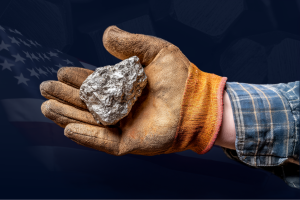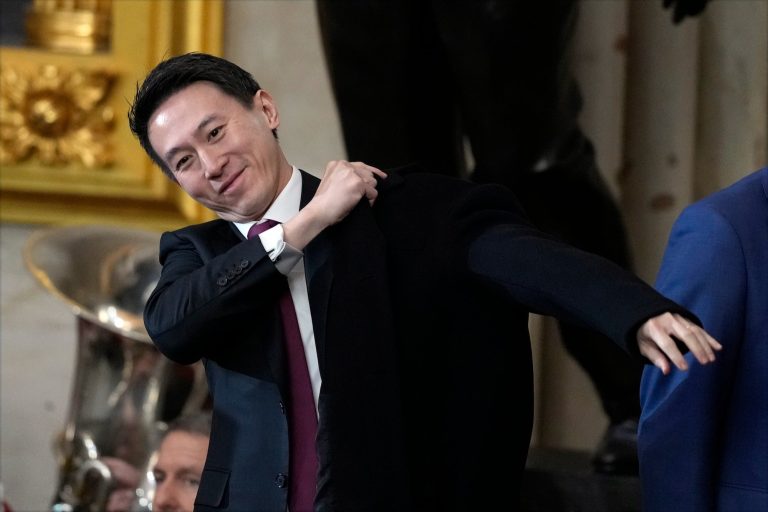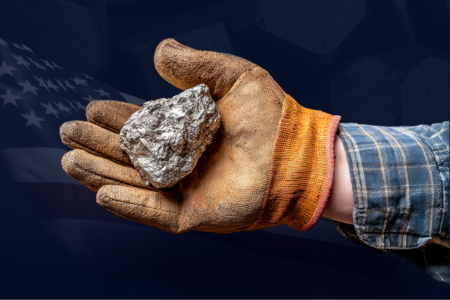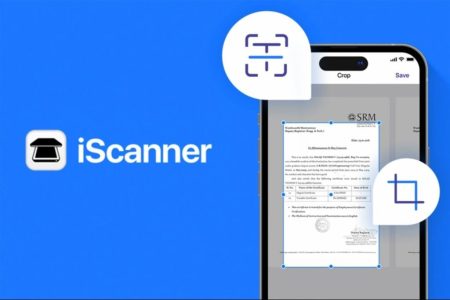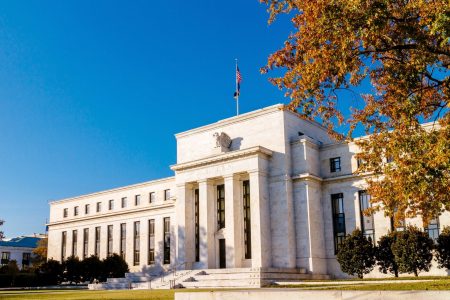On Monday, President Donald Trump signed an executive order giving TikTok a 75-day extension to continue its app operations in the U.S. while the Trump administration determines “the appropriate course of action” to take next.
“I hereby order the Attorney General not to take any action on behalf of the United States to enforce the Act for 75 days from the date of this order, to permit my Administration an opportunity to determine the appropriate course of action with respect to TikTok,” the order reads. “During this period, the Department of Justice shall take no action to enforce the Act or impose any penalties against any entity for any noncompliance with the Act, including for distributing, maintaining, or updating (or enabling the distribution, maintenance, or updating) of any foreign adversary controlled application as defined in the Act.”
TikTok CEO Shou Zi Chew attends the inauguration of President Donald Trump at the U.S. Capitol Rotunda on January 20, 2025, in Washington, DC. Donald Trump takes office for his second term as the 47th president of the United States. Photo by Julia Demaree Nikhinson – Pool/Getty Images
After the Supreme Court upheld the TikTok ban last Friday, the app briefly went dark in the U.S. for the 170 million Americans who use it. A message read: “Sorry, TikTok isn’t available right now.”
The app was back by midday Sunday but was still unavailable in app stores.
TikTok’s welcome back message for users read: “Thanks for your patience and support. As a result of President Trump’s efforts, TikTok is back in the U.S.!”
TikTok CEO Shou Zi Chew attended Trump’s inauguration on Monday.
Related: Tech Billionaires Get the VIP Treatment at Donald Trump’s Inauguration
Why Was TikTok Banned?
Congress passed a law in April 2024 called the Protecting Americans From Foreign Adversary Controlled Applications Act, which gave TikTok until January 19 to separate from Beijing-based parent company ByteDance and be sold to a non-Chinese company or face a ban from U.S. app stores.
Lawmakers were concerned about U.S. user data making its way to the Chinese government and TikTok spreading Chinese propaganda to the American public.
Related: Here’s How Long ByteDance Has to Sell, and Why TikTok Is Preparing for a Legal Battle
TikTok fought the law in the courts, arguing that it was unconstitutional and violated the free speech guaranteed in the First Amendment. The social media company brought its argument before the Supreme Court on January 10, but was unsuccessful: The court upheld the TikTok ban on Friday.
Why TikTok Is Back
The change arrived thanks to a Sunday post from Trump on Truth Social. Trump said he would issue an executive order on Monday to lengthen the time TikTok has before the law’s restrictions take place.
The order would ensure there would be “no liability for any company that helped keep TikTok from going dark” before his executive order.
Trump also stated that he wants the U.S. to have 50% ownership of a joint venture to own TikTok.
“Therefore, my initial thought is a joint venture between the current owners and/or new owners whereby the U.S. gets a 50% ownership in a joint venture set up between the U.S. and whichever purchase we so choose,” Trump wrote.
“We thank President Trump for providing the necessary clarity and assurance to our service providers that they will face no penalties providing TikTok to over 170 million Americans and allowing over 7 million small businesses to thrive,” Tiktok said, in a statement.
Another Possible Buyer Emerges
TikTok has already received many bids (official and not) for the platform.
Shark Tank investor Kevin O’Leary joined forces with billionaire and former L.A. Dodgers owner Frank McCourt in a $20 billion bid to buy the platform. Trump stated on Sunday that he wants the U.S. to own half of TikTok. There were also reports that Chinese officials talked about selling TikTok to Elon Musk, which TikTok called “pure fiction.”
Now, reports emerged that AI search engine startup Perplexity AI submitted a bid of at least $50 billion to ByteDance on Saturday to create a new merged entity consisting of TikTok U.S., Perplexity, and its partners, per CNBC.
The merger would add more videos to Perplexity and allow ByteDance investors to keep their equity stakes.
ByteDance has previously indicated that it would not sell TikTok, so Perplexity believes it has a chance with a merger rather than a sale.
Related: ‘I Am Open to Investing’: Mark Cuban Announces Open Call for ‘Anyone’ Who Can Build a TikTok Alternative
Read the full article here


